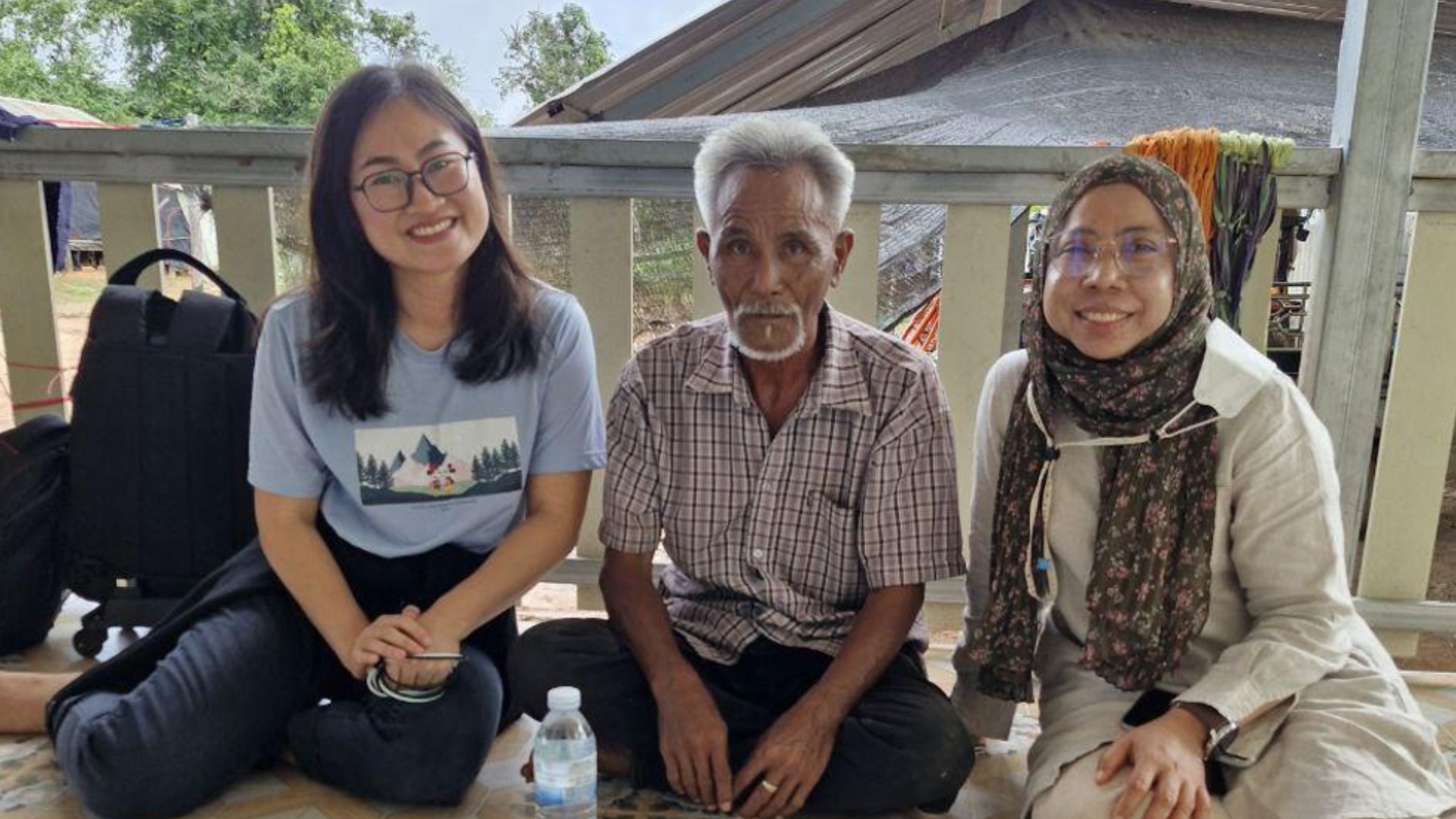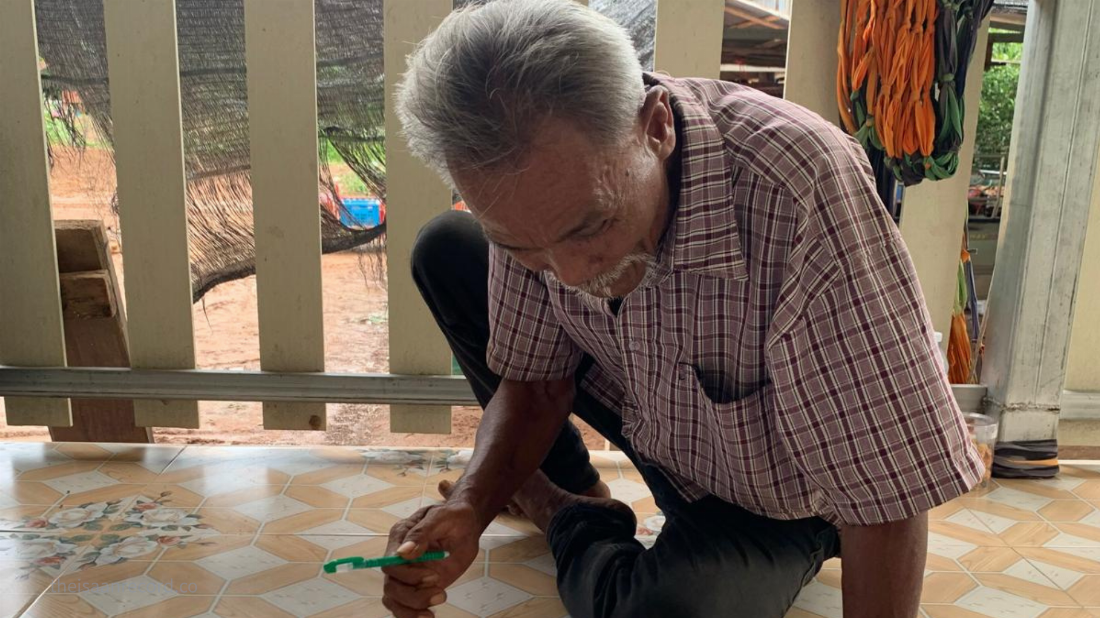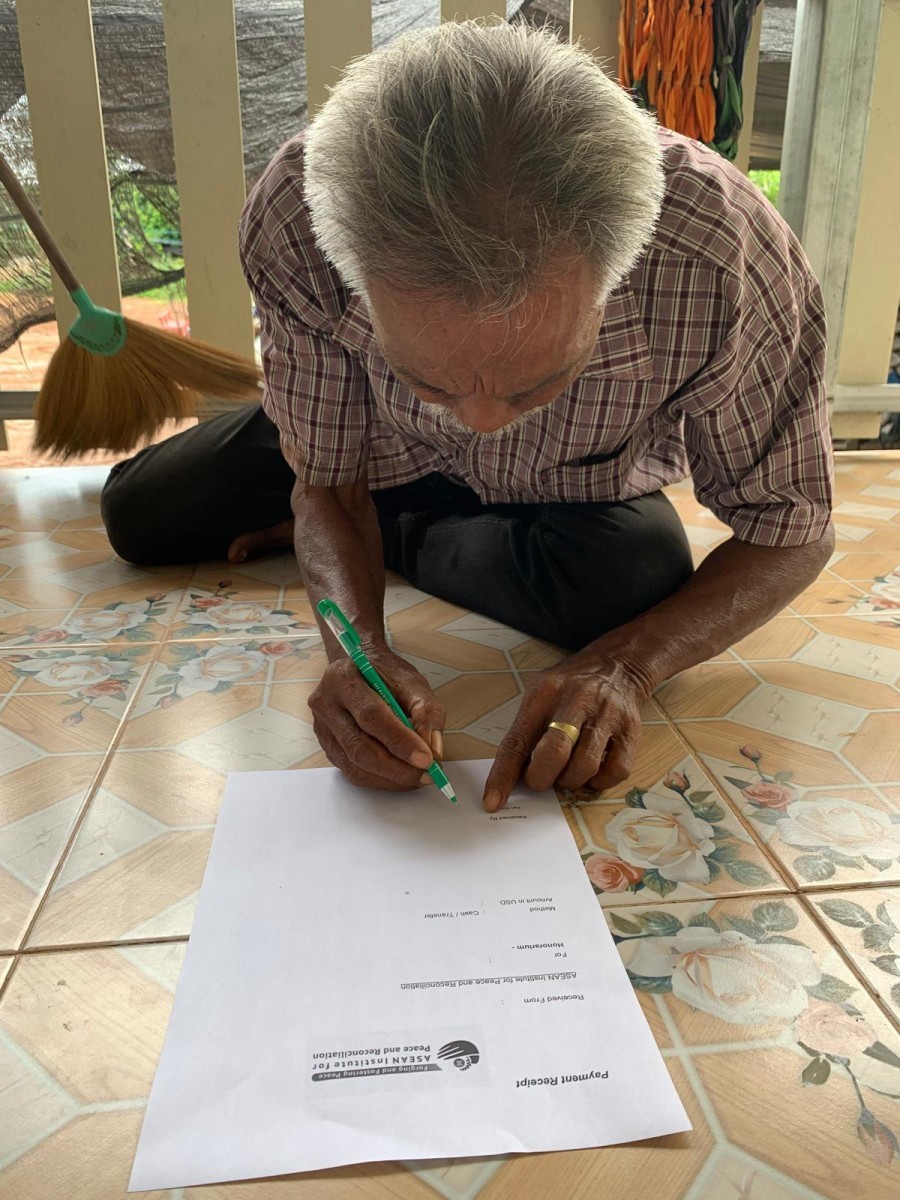thailand - peacebuilding
Suwit Rattanachaisri

- Actor/Organisation
- Suwit Rattanachaisri / -
- Current Title/Designation
- Defendant
- Expertise/Focus Area
- Environmental Development and Land Rights
- Date of Interview/Research
- 04 August 2024
- Location of Interview
- Sab-wai Village, Nong Bua Rawe District, Chaiyaphum Province
- Diplomacy Track
- 3
Starting Point
Suwit Rattanachaisri, an elderly man from Sap Wai Village, was convicted and sentenced in a land dispute involving Sai Thong National Park. He faced two charges, resulting in a 17-month prison sentence and an increase in the damages he was ordered to pay from 40,000 baht (1,177 USD) to 110,762 baht (3,260 USD). Additionally, the court ordered the eviction of his family from land they had lived on for generations before it was designated as a national park by the state.
Suwit married a woman from Sap Wai Village, making him a resident of the area for over 40 years. He cultivated cassava on his 2 rai, 1 ngan, and 20 square wah (approximately 3,320 square meters) of farmland. After harvesting, he sold the cassava roots at local buying stations to support his family, including his two children. In 2016, he was ordered to vacate the land and clear all agricultural produce, causing him immense stress. This led to a stroke from the stress of his situation, leaving him with limited memory, as he now recalls only parts of his life. Currently, Suwit lives with his son, who helps with farming, while his daughter has married and moved out of the village.
Suwit shared that during his legal ordeal, he never discussed the case with his family—not with his son or daughter. Instead, he only sought advice from others facing similar charges. In most cases, he turned to Kob for guidance, as despite being a man, he lacked legal knowledge. Kob helped explain the legal complexities to him in a way he could understand. Today, Suwit is one of 14 people who continue to fight together for justice. They travel as a group, advocating for their rights as Thai citizens who deserve fairness and justice.
Peace Journey
Although Suwit is a man, the movement to reclaim justice for himself and his community is primarily driven by the women in the village. Suwit sees himself as a good follower in this process, as he lacks knowledge of legal matters. Women like Kob have played a crucial role in helping him understand the complexities of legal battles, making the process more accessible to him.
Suwit reflects on his position as a Thai citizen, emphasising that, as a poor individual living hand-to-mouth with no legal expertise, he feels let down by a government that fails to educate its citizens. Instead of empowering people, the government uses laws to target the poor. Many times, attempts to solve problems through legal means fail because officials do not engage with the local population or involve them in decision-making. The use of laws often leads to more conflict and additional problems.
Suwit believes that peacebuilding in such areas cannot rely solely on legal frameworks. Instead, it requires empowering citizens by providing them with the same level of knowledge as government officials. He acknowledges that he has learned a lot, but it is knowledge gained through his own struggles with legal cases—not knowledge provided by the state.
Success Stories
The fight for land rights presents significant challenges for impoverished people in the area, particularly regarding the intersectionality of class and societal hierarchy in the country. Suwit perceives his struggle as one of acceptance and surrender to fate (in line with Buddhist philosophy). He notes that economic status profoundly impacts participation in peacebuilding efforts, as the poor are often the ones most affected by injustice.
Suwit shared that, despite being a Thai citizen and living on land passed down through his ancestors, he has been labeled as encroaching on a reserved forest. He believes that state officials should support and facilitate the lives of their citizens, especially those who are poor and in need. However, the opposite has been true in his case. When government representatives engage with the community, they often do so strictly within the framework of the law, speaking in legal jargon that ordinary people, who lack any understanding of the law, cannot comprehend. In contrast, poor villagers like him can only speak from the truths of their everyday experiences.
Through his fight alongside the women in his community, Suwit has learned the importance of mutual support and trust within the group. He found that women are knowledgeable, understanding, patient, and capable of managing or coping with problems effectively. Peacebuilding processes involving women tend to be more successful. He also emphasises that the government must help ensure equality for all citizens, avoiding discriminatory practices that favor the wealthy while neglecting the poor.
-
Implementing AgencyAWPR Thailand
-
Lead ResearcherAmporn Marddent
-
Co-Researcher/Research Assistant(s)Suphatmet Yunyasit (co-researcher), Wilasinie Sopaphol and Fatin Jamjuree (research assistants)
-
Date ResearchJune 2024-November 2024




